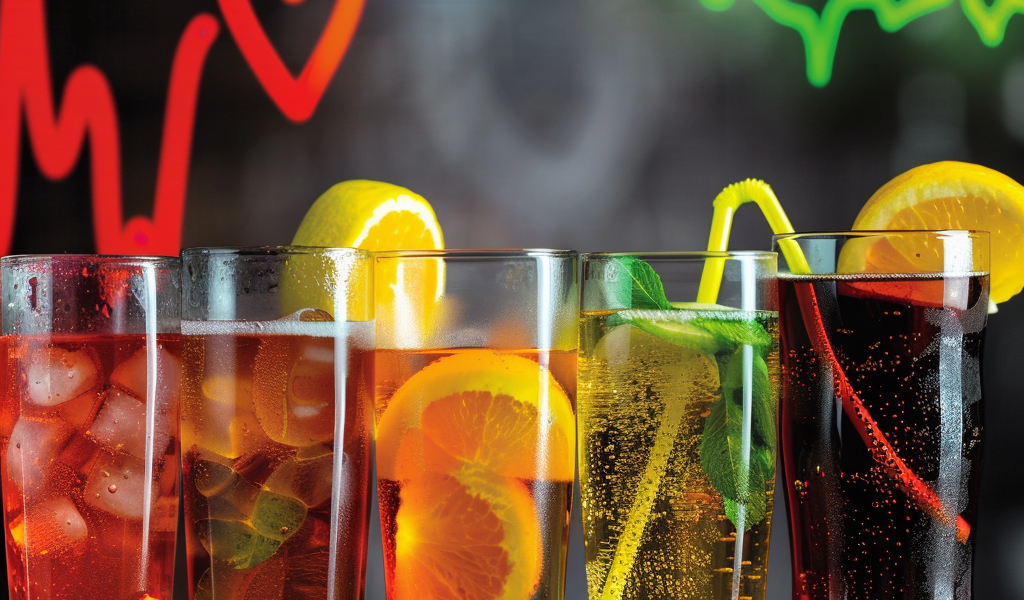Drinking sweetened beverages has been associated with an increased risk of irregular heart rhythms, according to a study published in Circulation: Arrhythmia and Electrophysiology. The analysis of health data from the UK Biobank revealed a 20% higher risk of atrial fibrillation among individuals consuming two liters or more per week of artificially sweetened drinks. Similarly, those who consumed similar amounts of sugar-sweetened beverages had a 10% higher risk.
Conversely, the study found that consuming one liter or less of unsweetened juice per week, such as 100% orange or vegetable juice, was linked to an 8% lower risk of atrial fibrillation.
It is important to note that the observational nature of the study prevents definitive conclusions about the causation of irregular heart rhythms by sweetened drinks. However, the association persisted even after considering a person’s genetic predisposition to the condition.
The research, conducted by Dr. Ningjian Wang and colleagues from the Shanghai Ninth People’s Hospital and Shanghai Jiao Tong University School of Medicine, sheds light on the potential health risks associated with sweetened beverages. Previous studies have already established links between the consumption of sweetened drinks and conditions such as Type 2 diabetes and obesity.
Atrial fibrillation, characterized by irregular heartbeats, significantly increases the risk of stroke. The American Heart Association’s 2024 Heart Disease and Stroke Statistics project that over 12 million people will be affected by AFib by 2030.
Dr. Wang emphasized the complexity of dietary habits and the possibility of individuals consuming multiple types of beverages, making it challenging to definitively attribute health risks to a specific beverage. However, the study’s findings highlight the potential impact of sweetened drinks on heart health and the importance of further research in this area.





